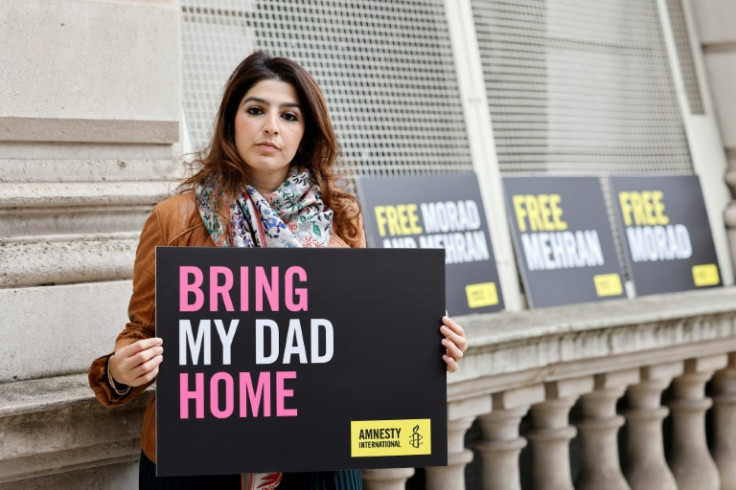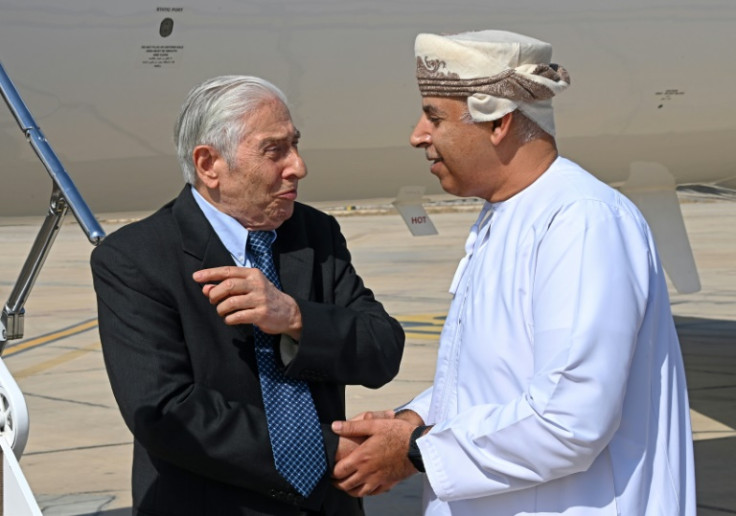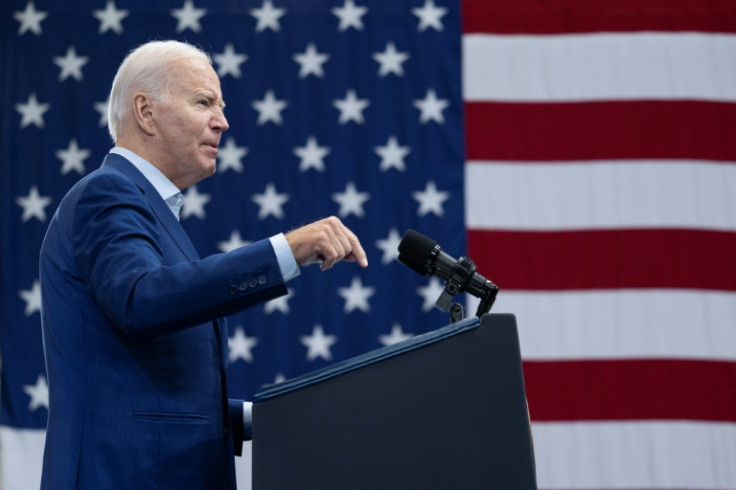Iran Moves Americans To House Arrest In First Step Of Release Deal

Iran has moved five Americans from jail to house arrest, officials and family members said Thursday, in the first step of a delicate deal that would unfreeze billions of dollars in Iranian funds and allow the prisoners to leave the Islamic republic.
The progress on the prisoners -- one of them detained for nearly eight years -- comes after quiet, exhaustive diplomacy between the longtime adversaries whose separate talks on restoring a nuclear deal broke down.
"My belief is that this is the beginning of the end of their nightmare, and the nightmare that their families have experienced," US Secretary of State Antony Blinken told reporters.
Sources familiar with the negotiations said the next step would be the transfer of $6 billion in Iranian oil revenue frozen in South Korea to a special account in Qatar which Iran could access only for humanitarian purchases such as food and medicine.
Iran described the deal as a prisoner swap, with the state-run IRNA agency quoting Tehran's mission to the United Nations as saying that each country will be "granting amnesty and releasing five prisoners."
If all goes as planned, the American prisoners could leave Iran sometime in September, one source said on condition of anonymity.
Four of the prisoners -- Siamak Namazi, Emad Sharqi, Morad Tahbaz and another who preferred to remain anonymous -- were taken Thursday out of Tehran's notorious Evin prison, a day after President Joe Biden's administration informed their families of the deal.
The four were escorted to a hotel where they will remain held under guard, a lawyer for one of the prisoners said.
Sources said that a fifth American, a woman, is also part of the discussions and had already been moved in recent weeks to house arrest.
"While this is a positive change, we will not rest until Siamak and others are back home; we continue to count the days until this can happen," Babak Namazi, Siamak's brother, said in a statement.
At the center of discussions has been the unblocking of the $6 billion that Iran earned selling oil to South Korea.
Seoul blocked the funds to comply with US sanctions imposed under former president Donald Trump that hit the Iranian economy hard.
While stressing that the arrangement was not final, sources said the funds would be converted from won to euros and administered by Qatar, which played a key mediatory role. No funds would be transferred directly to Iran.
Blinken made clear that the money already belonged to Iran and said, "Iran will not be receiving any sanctions relief."
"Iran's own funds would be used and transferred to restricted accounts such that the monies can only be used for humanitarian purposes," he said.
Iranian state media said the prisoners would only be released once the money was deposited.
Former president Barack Obama faced heated criticism from his Republican opponents for sending $400 million in cash -- also funds belonging to Iran -- as he secured the release of a previous batch of prisoners while concluding a landmark nuclear accord with Tehran in 2015.
Republicans quickly assailed Biden for the latest deal, saying it would ease budgetary pressure on Iran.
Senator Tom Cotton, known for his hawkish views on Iran, accused Biden of a "craven act of appeasement (that) will only embolden the ayatollahs to take more hostages."
There was no indication the prisoner deal would spur movement on restoring the nuclear accord, from which Trump pulled out.
Biden has bluntly dismissed prospects of reviving the 2015 agreement in the wake of a crackdown by Iran's clerical leaders and mass protests led by women.
The United States has repeatedly negotiated with adversaries to free American prisoners, whose plights can draw wide public attention. The Biden administration has brokered prisoner swaps with Russia despite refusing most high-level contact with Moscow since its invasion of Ukraine.
All five US citizens in the deal are of Iranian descent. Iran does not recognize dual nationality and has had hostile relations with the United States since the 1979 Islamic revolution toppled the pro-Western shah.
Namazi, a businessman, was arrested in October 2015. He was accused of spying on what his family calls laughable evidence, such as past affiliations with US think tanks.
His father, former UNICEF official Baquer Namazi, was himself arrested as he went to help his son but was finally allowed to leave last year as his health deteriorated.
Tahbaz, who promoted wildlife preservation in Iran, was arrested alongside fellow environmentalists in January 2018 and sentenced to 10 years for "conspiring with America."
Tahbaz is a triple national who also holds a British passport. He was briefly freed to house arrest last year during a deal with Britain that led to the freedom of two other UK nationals including aid worker Nazanin Zaghari-Ratcliffe.
Sharqi is a venture capitalist who was also sentenced to 10 years on spying charges.


© Copyright AFP 2025. All rights reserved.





















